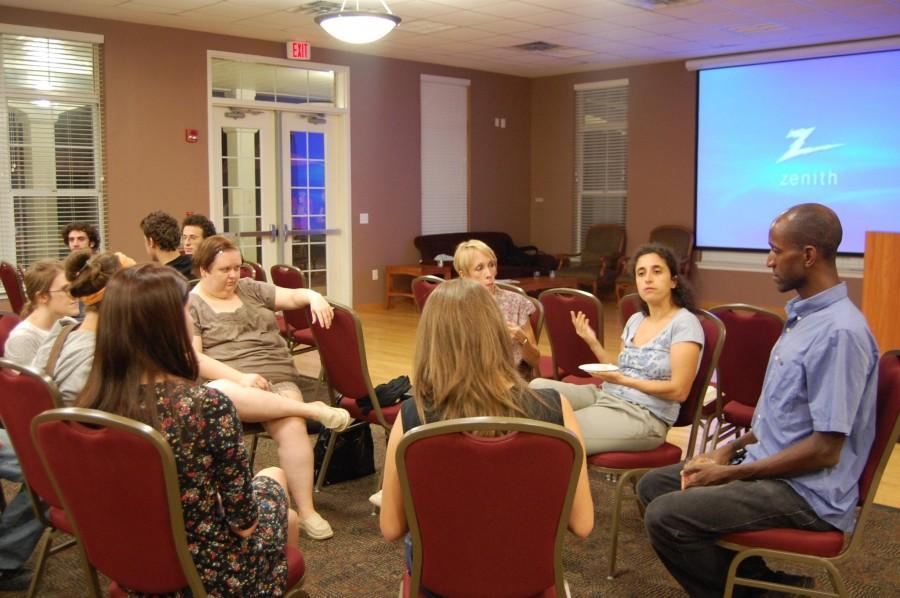College offers students many opportunities to explore and pursue their passion. But, for someone trapped in the academic grind, it is difficult to see how these lofty subjects can be applied in the “real world.”
Assistant Professor of English Diya Abdo hopes that her Arab Women Writers capstone students will move the topic out of the class to tackling real problems in their immediate surroundings. Through the Arab Women Film Series, the class invites the community to educate themselves on the prevalent misconceptions of Arab women.
“My students (learn) the significance of bridging the gap between what happens in the class and the world outside of it,” said Abdo in an email interview. “Also, greater comfort with public speaking.”
On Sept. 28, the class kicked off the series with the short documentary “Hollywood Harems” made by the production company Women Make Movies.
In signature Guilford fashion, the student facilitators began the night by turning the floor over to the audience, asking about their preconceived notions of harems. Answers varied from “sex” to “cushions.”
However, the movie argued that many of the ideas of harems and Arab women are incorrectly constructed and even have poisonous effects in the world.
“Hollywood created an imaginary East full of fantasies and myths,” the narrator says over footage of black and white scenes of harems, almost always cast with non-Arab actresses.
These fantasies and myths have, according to the film, become accepted as accurate representations: Eastern men were lascivious and Eastern women highly sexualized.
According to the film, these portrayals are not only wrong but simplify an entire complex culture as “timeless and exotic.” These ideas dehumanize Arab culture, making it into a commodity for the West’s disposal.
“Viewers could intrude voyeuristically through the intruder’s gaze,” says the film’s narrator.
As audiences could peer into harems through Hollywood, Arab culture was dehumanized into a commodity for the West’s occasional recreational use, according to the film.
After the movie, the audience formed small groups to discuss the film, each group facilitated by one of Abdo’s students. Participants were encouraged to share how the film challenged their ideas of harems and even to criticize the film. Many participants expressed that the film had sparked their interest, but that they now wanted an accurate depiction of harems, which the film did not include.
The turnout for this event included a motley group of Guilford students, professors, and interested community members.
“I’m in the post-colonial lit class and we’ve been discussing these ideas,” said junior Polly Rittenberg. “It was interesting to see this enacted in films because we’ve only been applying these theories to literature.”
Regardless of the reason that brought someone to this event, Abdo’s aim was for that person to leave challenged.
“(I hope they gain) a better understanding of how, why, and to what effect other cultures are represented in damaging and inaccurate ways,” said Abdo.
Some members of the class argue that these misconceptions are prevalent and will not be quashed anytime soon.
“Orientalism is a hell of a system,” said senior Colleen Hayes, one of the student presenters.
Hayes emphasized the importance of simply getting people thinking and practicing empathy.
“I hope that they will be able to look at different portrayals of Arab women and see if they are true or pertinent,” said Hayes. “I would ask them to put themselves in these women’s shoes, and see themselves not only as Arab women but Arab women who are scrutinized by the West and their own culture.”
The class will host two more scheduled film screenings in the Community Center: “Algeria: Women at War” will play on Oct. 26 and “A Woman’s Word” on Nov. 26.
Both showings will last from 7:00 to 8:30 p.m., offering two more opportunities to delve into important subjects, support the passion of these students, and enjoy some free food.

